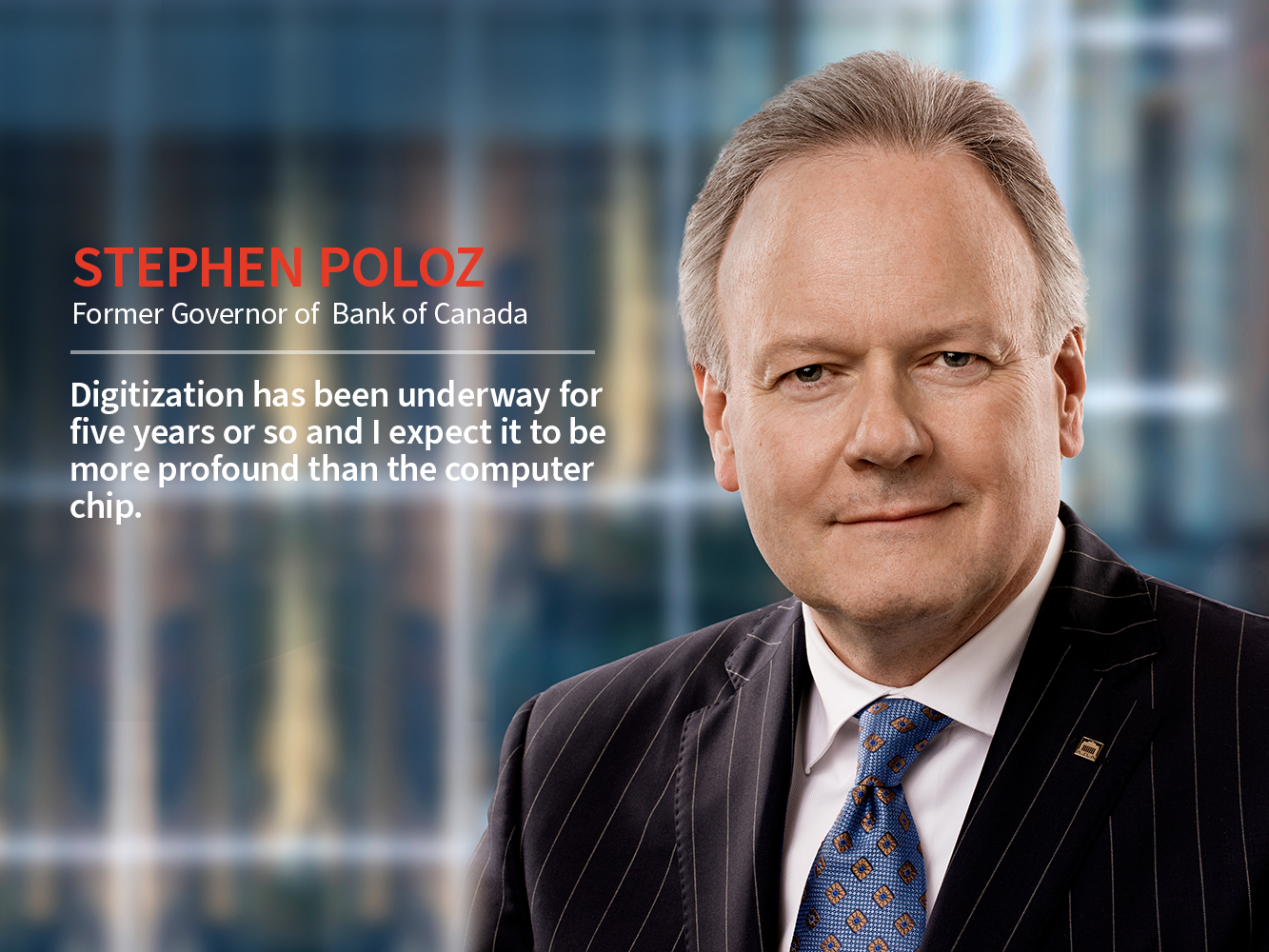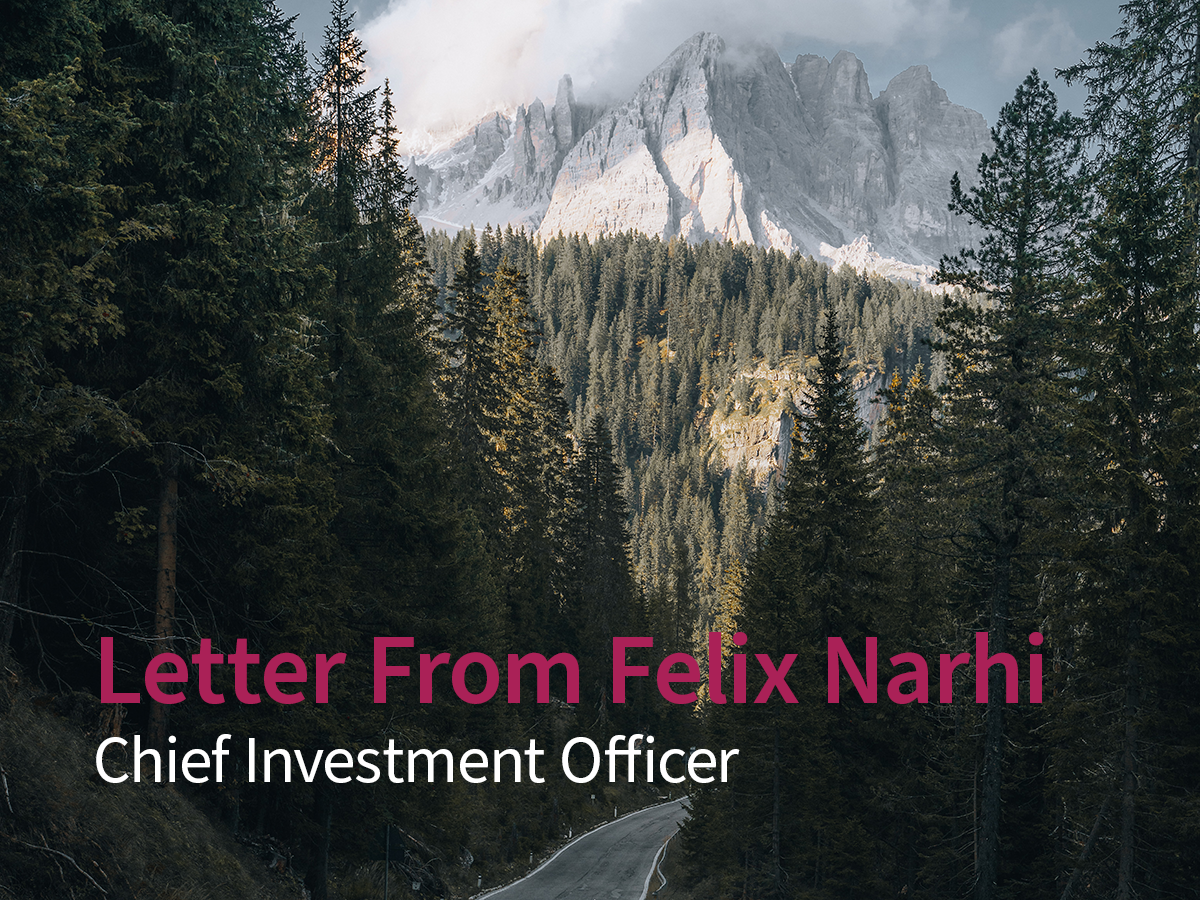Interview
Stephen Poloz talks to Pender about his new book, The Next Age of Uncertainty – Part 2

In part-two, Stephen Poloz, Special Advisor to Osler and former Governor of the Bank of Canada, talks to Pender about how his early life shaped his career, the outlook for inflation and the digitization of money.
In your book, you share details about the hardships of your upbringing and the effect those experiences had on your career.
There’s no question that my upbringing gave me a very, I would say, hands-on or practical sense of how folks go from day-to-day. That gave me a bit of an edge. Economists can live in an abstract world where they think about models of the economy and data.
Regarding my childhood, I wouldn’t say it was a hardship, but it wasn’t very comfortable. My father was a tool-and-dye maker for what now we would call a tier-three supplier. In other words, a supplier that made car parts for all three major automakers. He was working, grinding away some hard steel that would then become the mould. There’d be people stamping out the parts. The company decided to automate the presses, and the production workers, the ones who were losing their fingers, went on strike for a whole year to prevent it because their jobs were at stake.
My dad was locked out because he was not a production worker. He was a skilled worker. At the end of that year, we lost our house and moved in with my grandparents in this little wartime house in Oshawa. So things got even more sparse after that.
When you get to the top of the heap, you may think of things like interest rate movements in an abstract sense. For me, it’s always been a lot more real than for most economists I was hanging out with. What do interest rate changes mean for the ordinary person? How do we communicate that to them? How do we prepare and find a path that’s easier for them? That’s had a major influence on me. No question.
What lessons have you taken from your term as Governor of the Bank of Canada and the monetary response to COVID?
I would say it was the most successful macroeconomic operation in history. And I don’t mean just Canada. For example, in the G20, we all had agreed a couple of years before COVID that we would be stuck at low-interest rates, probably for a long time, maybe forever. If you can only cut interest rates by 2% before you hit zero, that’s not much. Fiscal policy would be the main actor if anything bad happened. When it did, one country after another, just stepped up. Monetary policy had to play a role, of course, but a supplementary one in the background. Things were happening like in that TV series 24 with Kiefer Sutherland. And we were doing all that from home. I’d go to the fridge, grab something and then feel like tick, tick, tick, because there’s another meeting in eight minutes.
We got it all done, and at the time we said we’d keep the pedal to the metal until the recovery was clearly underway. Well, that could have been by around Christmas of that year, but then we got hit with another wave. Another round of shutdowns. I never dreamed fiscal policy could be that effective.
“If oil was $60 or $70 right now, we would not be having any of the conversations we’re having about inflation.”
A Depression means going down and walking across the bottom for 10 years. Rich people call that “cleansing”. It clears out the dead wood, but only the very richest people think that way. The rest of us would be walking along the bottom of that crater for years. Instead, we filled that crater with liquidity, so everybody could roll their boats across. Once you get your feet on dry land, we could drain the crater. That’s what’s happening right now. Inflation wouldn’t be an issue if it weren’t for the oil price shock. If oil was $60 or $70 right now, we would not be having any of the conversations we’re having about inflation.
So, you’ve got to give them credit for only spending about half of it, and the other half was put to making a faster decline in Canada’s debt-to-GDP ratio. That’s a big accomplishment within the political reality. In general, globally, there’s a lot of temptation to have more inflation. In the ‘70s, there were only two winners: governments and heavily indebted households.
The nature of our politics is that because of rising income inequality, that’s where populism comes from. Today, the share of total income in the world going to labour is at the lowest level in recorded history. In Thomas Piketty’s book Capital in the Twenty-First Century, there are some long-term charts that show when those low points happen, that’s usually when there’s a revolution.
This is what populism is about, how Donald Trump and Boris Johnson got elected, for example. These things either need to be addressed or ignored and for governments to say, “Let’s have some inflation.” That’s what happened in the late ‘60s. That’s why we had high inflation in the ‘70s.
“Firefighters do not get criticized for using too much water. On Star Trek, you never hear Picard arguing about how many photon torpedoes to use.”
Why are you so confident that, over the long-run, inflation will trend towards 2%?
If you ask a chief economist if it’s safe to get across the river, the economist will say, “Don’t worry, you can just walk across because it’s only 12 inches deep on average”. You might decide to take a boat across instead because the river just might be 60 feet deep somewhere. That’s the science of economics: when an economist says inflation is going to be 2% on average, it would be catastrophic to ignore the hard lessons regarding inflation from the ‘70s and ‘80s.
Heavily indebted households are riled up right now about inflation because they go to the store, and everything costs so much. We’ll give them one more year of this until they get a fairly good wage increase, not totally compensating, but helping. They’re going to start to understand that actual inflation works for them too because their mortgage is just a number relative to their salary and it can go down really fast like it did in the 70s and early 80s. So, they could actually vote for somebody who says, “Let’s have some more inflation.” Now it doesn’t matter how independent the central bank is.
If that’s what happens politically, the risk of inflation being 2% is much higher, both for that reason and because of the volatility that I’m talking about. As things interact, prices are going to go up and down a lot more than before, and central banks can’t control that, nor should they try. That’s just noise. That’s us making decisions in an environment that’s harder to figure out. We hope that inflation, when it’s low, is less variable too.
I think central banks have learned a lesson. We’ll get back to that 2%, but if it’s 3% or even more next year, people will be screaming about what a bad mistake that is. Firefighters do not get criticized for using too much water. On Star Trek, you never hear Picard arguing about how many photon torpedoes to use.
If the crater’s got too much water in it, you’ve got to mop it up. There’s a little spillage, but that’s okay because you need to bear in mind that this would be a lot worse if we were sitting here in the middle of the 2nd Great Depression. That’s worth a few points, okay? And if there’s a mess on the inflation side, you’re going to have to explore how much of it is due to oil and other commodity prices, and because of Russia. Inflation may be 4% or 3%. It’s not ideal. I get that. But it beats the 2nd Great Depression by a long shot.
What are your thoughts about a Canadian digital currency?
When I think of a central bank digital currency, I just think of bank notes but in a digital form, on a little smart card, or perhaps on your phone, whatever method works for you. They’re issued by a central bank instead of by some private provider. It is the central bank’s responsibility to provide you with whatever means of payment you prefer to use. People are already moving in this direction, and central banks are almost ready to launch digital currencies. And they will. The Bank of Canada is only licenced to print banknotes, not to issue other forms of money, such as in digital form. So, we have to change the bank of Canada’s founding legislation to give them permission. They’re getting it all ready. It’ll come off the shelf whenever a critical mass of people want to pay that way. Central banks are mandated to provide people with whatever it is they prefer to conduct their payments.
What’s on your bookshelf these days?
I’m about to read Ian Bremmer’s new book, The Power of Crisis. I follow Ian Bremmer like a little puppy dog, for his geopolitical stuff. Another book I’m reading is Ray Dalio, Principles that’s again about different world orders. What I love about it is that if you go on Amazon to order my book, it says people who bought this also bought Ray Dalio’s book. I’m like, “Wow.”
I’ve just finished China Unbound by Joanna Chiu. She’s been a journalist for the last 20 years, mostly reporting from China. That’s a great book. On my commute home I’ll be reading Troubled Blood by J.K. Rowling. I mean, you’ve got to spend that first half-hour every day with the Financial Times. After you’ve done that, then you can read The Globe and Mail and The Economist.

Stephen Poloz talks to Pender about his new book, The Next Age of Uncertainty – Part 1
In part one of two, Stephen Poloz, Special Advisor to Osler and former Governor of the Bank of Canada, talks about future economic volatility and the five tectonic forces driving it. Why title your book […]

Range Anxiety: Inflation and a recession risk…but also a silver lining
In this article, I’ll attempt to unpack where we are today and what’s ahead. And, spoiler alert, there are reasons for optimism despite the current headlines



